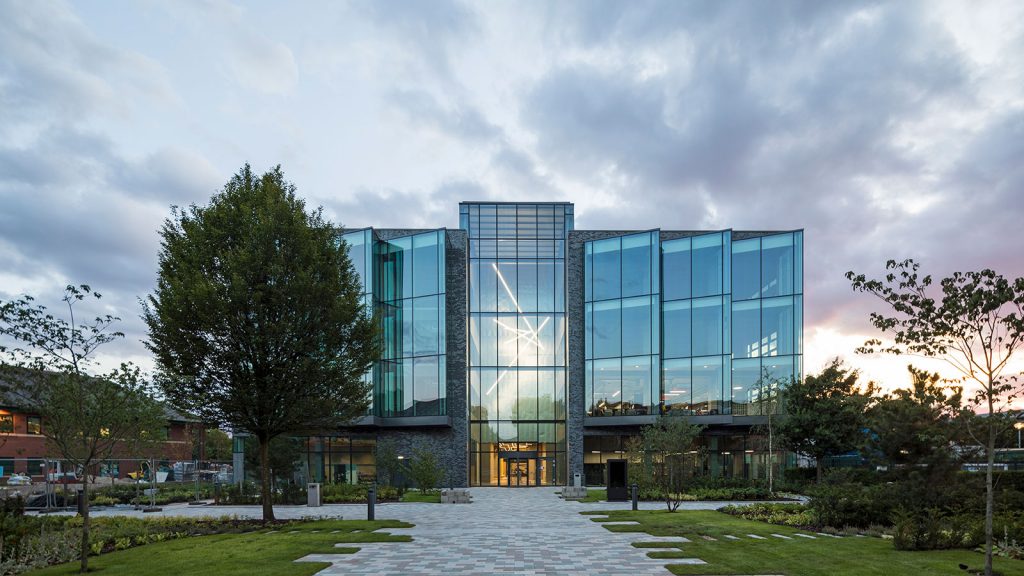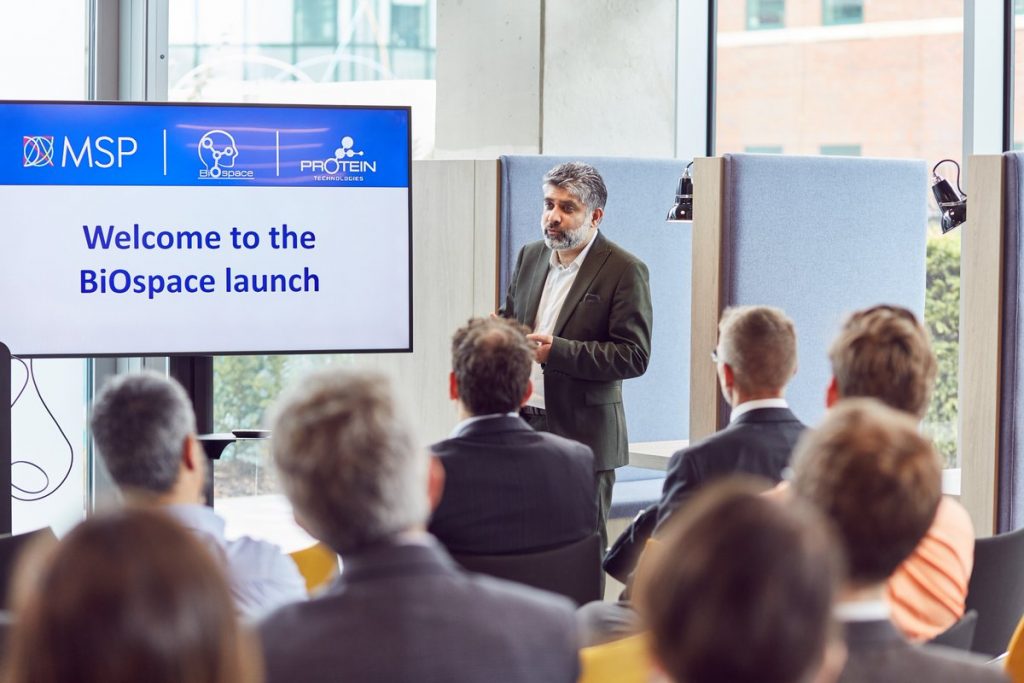The city of Manchester in the UK has opened the doors on BiOspace, the area’s first open access laboratory. The facility gives independent PhD scientists and startups the opportunity to use the latest cutting-edge technologies, including equipment for understanding protein chemistry, cell culture incubators and 3D printers, on a pay-as-you-go basis.
The idea is that BiOspace access will nurture new medical advances past the early research and development stage. According to figures posted on the facility’s website, “Ninety percent of biotech and med-tech companies experience failure within the first three years of launch due to the high financial burn rates in R&D.” Additionally, the average startup spends “over 50% of their funding on capital equipment, supplies, and other operational expenses related to running a lab.”

The perfect environment for biotechnologies
BiOspace is located within the Manchester Science Park providing close connections with nearby medical technology facilities and a campus in Cheshire. It is a joint venture between the park’s co-coordinators Manchester Science Partnerships (MSP), and biomatter manufacturer Protein Technologies Limited (PTL).
Speaking to BQ Live Dr. Farid Khan, chair of Protein Technologies Ltd. comments, “BiOspace offers the ideal environment for interdisciplinary collaboration, with experts in biology, 3D printing, electronics and software development coworking in one facility,”
“In essence, BiOspace offers incubation at the very earliest stage. The hope then is that as start-ups grow, they make the natural transition to the next stage of the MSP ecosystem facilities like the MedTech Centre, Bright Building’s Mi-IDEA and the BioHub – at Alderley Park’s Mereside campus, in Cheshire.”

Medical device prototyping
Lucid Innovation is one of BiOspace’s early adopters. Founded in 2002, Lucid is an industrial design company, providing prototyping, brand development and simulation expertise for the launch of medical devices and products. The company has ISO-13485 accreditation, ensuring the medical-grade quality of its products. Lucid’s primary skillset includes the use of Stratasys’ PolyJet 3D printing technology.
LIG Biowise is another startup that is using the facility, working on a point-of-care diagnostics kit for respiratory tract infections.

The knowledge economy
As uptake increases at BiOspace, Manchester Science Park could become a much-needed hub for medical research in the UK. In closing comments, MSP managing director Thomas Renn adds, “We’re passionate about supporting innovative businesses at every stage of their life cycle. The launch of this flexible new facility for very early-stage businesses is an important step,”
“With reduced overheads, and the business support network afforded by the MSP community, entrepreneurs have access to an environment conducive to measured risk-taking and meaningful collaboration – both essential elements of a thriving knowledge economy.”
Never miss another 3D printing news story again – sign up to our newsletter, follow us on Twitter and like us on Facebook. Find 3D printing events near you here.
Featured image shows phials of luminious liquids researched at Manchester BiOspace. Photo via Biospace UK



